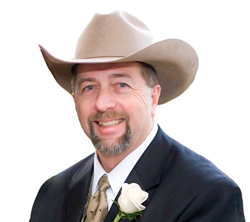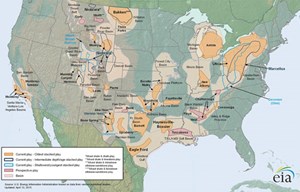What's new in exploration
I see, and hear, distrust in regulators, and regulations, in almost every conversation these days, in and out of our business. One of the reasons that the English left the EU was the new EU mandate on the proper size of a dark brew (Editor’s note: This is the same EU that plans to interfere in everyday people’s lives by banning high-wattage appliances—everything from hair dryers to kettles and toasters—as part of its “Ecodesign” restrictions.). Don’t try to buy a soft drink of more than 16 oz. in New York City—it’s illegal.
I was meeting with a significant small producer this summer, and we had a chat about life, oil and going forward. He stated that his number-one issue with exploration and production, onshore the U.S., is regulation. That is, an endless set of new restrictions that are created by others, who have total control over his actions, company and profits. Regulations are not only impactful in dollars, but often not realistic about the alleged problems. Have you heard about methane emissions on your drilling rig’s diesel? Now is our time to object and put facts in front of a larger audience. You should, if you intend to go back to work.
There are “community organizers” in the news today, stirring up issues in the U.S., Africa, South America, and even around the South China Sea. Every one of these places has hydrocarbons that we are producing, and where we would like to produce more. Who is our pro-active organizer of the oil-and-gas community? I suggest that API is politely leading issue management.
It’s time to stop whining at professional meetings and bring the dialogue to our consumers. Remember, BSEE, the main U.S. offshore regulator, was sued in Colorado for being too friendly to the offshore Gulf of Mexico oil patch. Colorado is a long way away from the Gulf by airplane, but only microseconds away in social media. My work with BSEE, while at RPSEA, has been one where the people of BSEE have shown professionalism in their mission, which is to enable exploration and production, often making pro-industry decisions in spite of appearances. We are in conflict with the wrong end of the spear!
I suggest activism in your industry. I am from Wyoming, and maybe I don’t know better. But I do know that if you do not prepare yourself for winter, you will die. We focus on tech, and continue to lose jobs. As the CEO of the small producer points out, if he can’t put a bit into the ground, all the science and engineering is not needed.
The map on this page shows onshore shale resources. The same map, as seen the way that some regulators are perceived as seeing it, is a battleground to be defended. RPSEA has objectively studied the environmental impacts of drilling in each of these areas, funded by DOE, not EPA, at the request of the U.S. Congress (http://www.rpsea.org/projects/10122-06/). Think about that.
In the public mind, we are incompetent at the least, and greedy and criminal at the worst. Technology is protected by international treaties of patents. Whether you get to use it is not protected. That decision is controlled by a handful of persons listening to others, who would rather play Pokémon than think about your company, where gasoline comes from, or your latest glow-winky computer program.
Currently, under law, regulators require a young set of eyes to stand on the stern, or fly bridge, of a seismic vessel to spot marine mammals, just for a seismic boat to operate normally. No one’s eyes can even see to the length of the outboard cable. Do you disagree? Better consider the curvature of the earth when computing the distances of today’s marine streamers. How does that work at night? Shell could not go “Arctic,” because EPA would not permit the topsides diesel engines to be used on their support barge.
We often are our worst enemies. Operators of a canceled DOE project refused to examine viable alternatives to the seismic air gun because of fear of controversy, if it worked! An engineer from a large operator cautioned about problems in a magazine ad, which pointed out a problem that regulators are documenting. He made his comments, in spite of the fact that his company has invested heavily in research to correct the problem.
A senior oil exec objected to an award-winning image shown at a recent conference, because he worried that a disaster prevention project might cause a public overreaction to possible fires and explosions on a floater. Really? It’s a little bit late to worry about an over-reaction, when post Macondo liability is at $61.6 billion, just for BP. Release of operator data shows more than 142 deaths in the oil-and-gas extraction part of our industry in 2014 (per OSHA, Bureau of Labor Statistics).
Research to save lives has value—it could be your life someday, or mine! Your HSE folks have all the power and money for a reason. We are in the thickest of the public conversation. Hiding does not work. So far, we are losing our ability to explore. It could well be our fault. ![]()

- Advancing offshore decarbonization through electrification of FPSOs (March 2024)
- Shale technology: Bayesian variable pressure decline-curve analysis for shale gas wells (March 2024)
- The reserves replacement dilemma: Can intelligent digital technologies fill the supply gap? (March 2024)
- What's new in production (February 2024)
- Subsea technology- Corrosion monitoring: From failure to success (February 2024)
- Prices and governmental policies combine to stymie Canadian upstream growth (February 2024)



